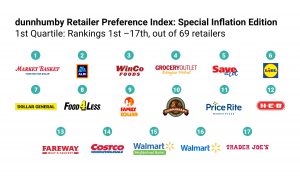 Laura Chenel is discontinuing production of its award-winning probiotic goat yogurt because the recent rising costs of milk and other materials, which means that the company can no longer produce this product at an affordable price, according to a letter sent to customers from National Sales Director BJ Frank.
Laura Chenel is discontinuing production of its award-winning probiotic goat yogurt because the recent rising costs of milk and other materials, which means that the company can no longer produce this product at an affordable price, according to a letter sent to customers from National Sales Director BJ Frank.
Effective Sept. 30, Laura Chenel will discontinue the Laura Chenel Probiotic Goat Yogurt line (Plain & Vanilla 4.75 ounces and Plain 23 ounces.).
“We are committed to bringing good, wholesome food to home cooks and chefs across the nation,” Frank wrote. “With this in mind, for the last few years, we’ve made delicious, award-winning, gut-friendly probiotic goat yogurt that was well received by our consumers.
“Other than freeing up resources, this change does not impact any of our other product lines at Laura Chenel or within our family of brands, St. Benoit Creamery and Marin French Cheese Co.,” Frank wrote.
Laura Chenel introduced a new chapter in American cheese in 1979 when she started making farmstead goat cheese with milk from her goats and techniques she learned in France. Today, Laura Chenel still embodies its founding namesake’s trailblazing spirit as a leading producer of fresh and aged goat cheeses crafted with fresh goat’s milk from family-owned farms in California, Oregon, Nevada and Idaho. Located in the heart of Sonoma County,
Laura Chenel is the first creamery in the United States to be awarded the prestigious LEED Gold certification for achievement in green building sustainability. Its commitment to environmental practices, such as solar energy and water recycling, helps preserve the terroir for generations to come.
October’s Gourmet News brings our Fall Cheese Guide. Subscribe now so you don’t miss it!

